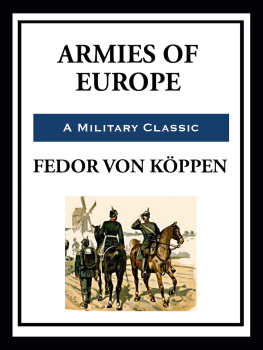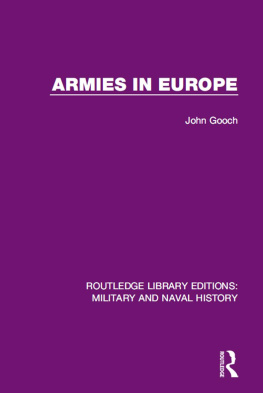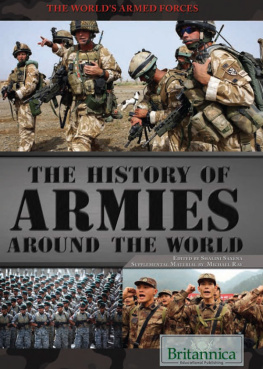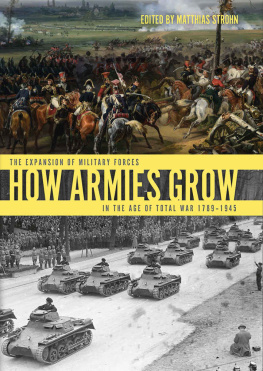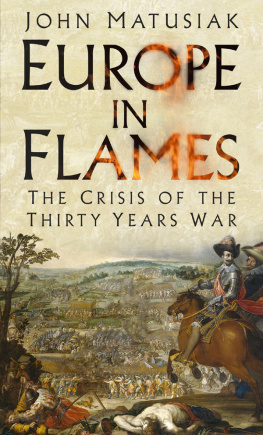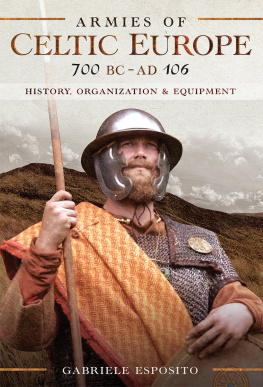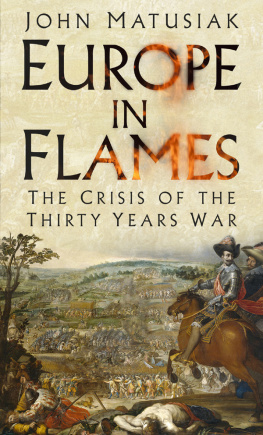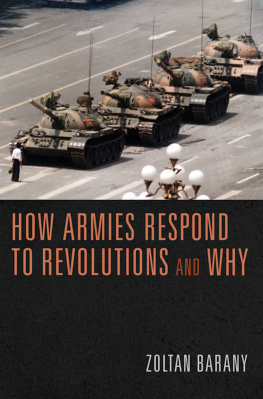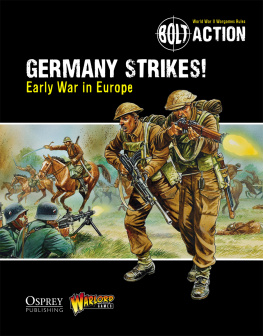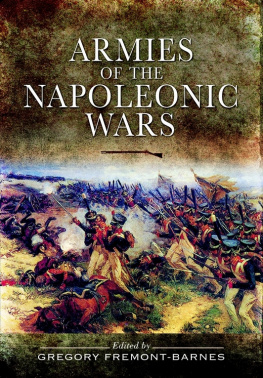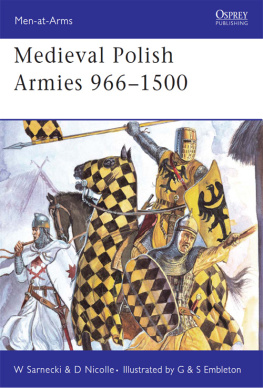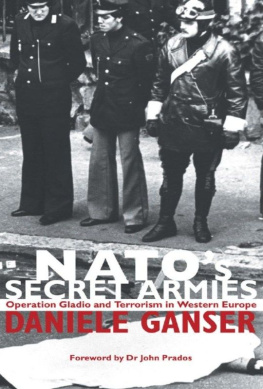Edor von Köppen - The Armies of Europe
Here you can read online Edor von Köppen - The Armies of Europe full text of the book (entire story) in english for free. Download pdf and epub, get meaning, cover and reviews about this ebook. publisher: Start Publishing LLC, genre: Romance novel. Description of the work, (preface) as well as reviews are available. Best literature library LitArk.com created for fans of good reading and offers a wide selection of genres:
Romance novel
Science fiction
Adventure
Detective
Science
History
Home and family
Prose
Art
Politics
Computer
Non-fiction
Religion
Business
Children
Humor
Choose a favorite category and find really read worthwhile books. Enjoy immersion in the world of imagination, feel the emotions of the characters or learn something new for yourself, make an fascinating discovery.
- Book:The Armies of Europe
- Author:
- Publisher:Start Publishing LLC
- Genre:
- Rating:5 / 5
- Favourites:Add to favourites
- Your mark:
- 100
- 1
- 2
- 3
- 4
- 5
The Armies of Europe: summary, description and annotation
We offer to read an annotation, description, summary or preface (depends on what the author of the book "The Armies of Europe" wrote himself). If you haven't found the necessary information about the book — write in the comments, we will try to find it.
The Armies of Europe — read online for free the complete book (whole text) full work
Below is the text of the book, divided by pages. System saving the place of the last page read, allows you to conveniently read the book "The Armies of Europe" online for free, without having to search again every time where you left off. Put a bookmark, and you can go to the page where you finished reading at any time.
Font size:
Interval:
Bookmark:

Start Publishing LLC
Copyright 2020 by Start Publishing LLC
All rights reserved, including the right to reproduce this book or portions thereof in any form whatsoever.
First Start Publishing eBook edition.
Start Publishing is a registered trademark of Start Publishing LLC
Manufactured in the United States of America
10 9 8 7 6 5 4 3 2 1
ISBN 978-1-64974-010-6
Si vis pacem, para bellum!
Let him who is desirous of peace prepare himself for war. Thus runs the proverb which sums up the experiences and history of the most powerful Empire of old. If this maxim held good in the old Roman days, how much more applicable is it to the present time, when war-clouds are darkening the horizon, and threaten to burst in ruin and devastation on all nations who have not heeded the warning! There are, however, few who have not heeded it, and the governments of all nations have been for some time, and are still, reorganising their Armies and bringing them to a high state of efficiency in accordance with the experience taught them by the great wars of the last thirty years.
It is therefore necessary for all who take an interest in military matters, or in foreign politics, to become acquainted with the strength and organisation of the armed forces of the different European Powers, for it is only by a study of these Armies that we get to know the relative value of our own.
England.II.[LHS]
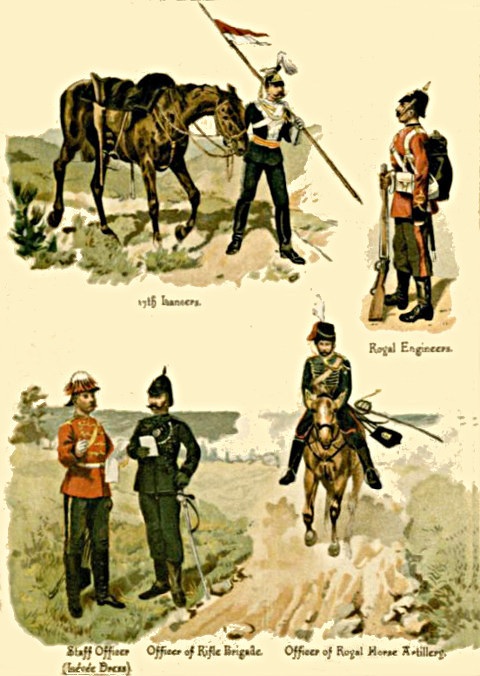

England.II.[RHS]
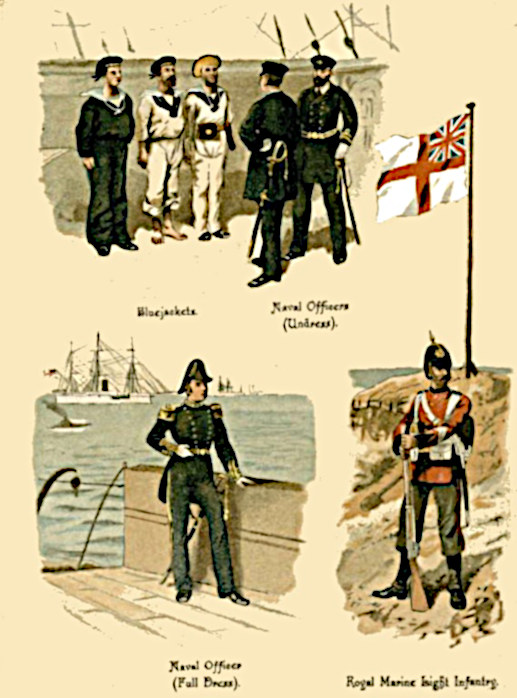

The British Army is constructed on a purely original system. It is like no other army in the world, and for this very good reason, that there is no empire in the world like the British Empire.
Great Britain and Ireland alone do not constitute the Empire. India, Australia, Canada, the Cape, and shoals of other colonies in every quarter of the globe, all help to build it up, and for its defence we must have an Imperial Army constructed to fit it. Let us see what we have got.
The first thing that strikes us about the Army is that, although of a decent size, it is not by any means too largein fact, some people say that it is nothing like large enough. That, however, is a question which chiefly concerns the British taxpayer and his pocket, and with which we have nothing to do at this moment, so we will confine ourselves to contemplating its actual size.
The Empire contains, roughly, over 9,000,000 of square miles, and over 326,000,000 of inhabitants. To defend these we have an Army which numbers roughly as follows:
| Regular Forces | 202,000 |
| 1st and 2nd Class Reserves | 57,000 |
| Militia and Militia Reserve | 134,000 |
| Yeomanry | 11,000 |
| Volunteers | 224,000 |
| Colonial Forces | 84,000 |
| Indian Native Army | 152,000 |
altogether, 864,000 men at the outside. This apparently large number, however, includes every single able-bodied man, British or Native, who has been trained to bear arms: the Regular Army forms not quite a quarter of it. Taken altogether, this gives an average of about 1 combatant to 350 non-combatantsnot a large proportion. Germanys proportion is 1 to 99. This is a large proportion, it is true, but then she is threatened by powerful enemies on her eastern and western frontiers, whereas we are an island, and look to our Navy as the first line of defence. This being so, we can do with a moderately small Army, and need not (yet) have recourse to the system of all other European countriesnamely, universal conscription.
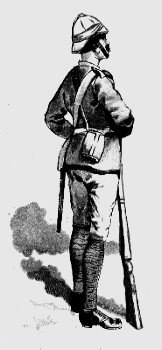
Mounted Infantry. (Tropical Field Kit.)
It is absolutely necessary, however, that we should follow the principle which underlies the military systems of all countries, whether their armies are composed of conscripts or not. This principle is that of keeping a small number of troops under arms in peace-time, with a large reserve of trained men ready to be called out in case of war. In our case, the small number under arms in peace-time is represented by the Active Army, both British, Indian, and Colonial,[2] and the large reserve by the 1st and 2nd Class Army Reserves, the Militia, the Militia Reserve, the Yeomanry, and the Volunteers.
Before starting on the details of these different forces, it would be as well to give the mode of enlistment and terms of service of the British soldier, with a slight sketch of his history.
The system of recruitment throughout the Army is that of voluntary enlistment. As mentioned above, we are the only country in Europe whose soldiers are thus enlisted. The subjects of all other European countries are liable to be enrolled in the army whether they like it or not, and, as a rule, they do not like it. This voluntary enlistment is a great advantage for us in one way, in that only those need be soldiers who want to be; but, on the other hand, the strength of our Army is chiefly dependent on the number of men who happen to fancy soldiering, and this is hardly a matter for congratulation. Up till now, the system has sufficed: let us hope we shall never have to change it.
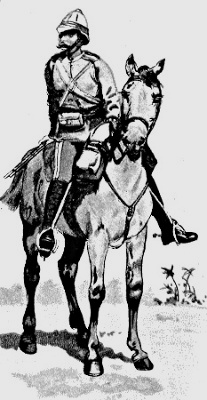
Cavalry. (Tropical Field Kit.)
It is not generally known that there exists an Act[3] which has to be suspended annually by Parliament (or else it would now be in force), by which the Crown is empowered to raise by ballot as many men as may be necessary for the Army. In other words, the country is liable to conscription, as far as may be determined by the Crowns advisers. This Act has, however, not been enforced since 1815. N.B.This mode of raising troops must not be confounded with the Embodiment of the Militia, of which more hereafter.
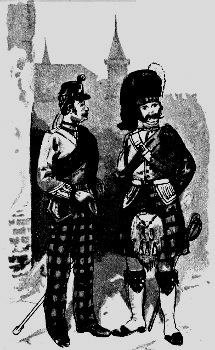
Officers of Highland Light Infantry and Argyll and Sutherland Highlanders.
Recruiting is carried out by paid recruiters (non-commissioned officers) in the different districts. Formerly, the recruiting-sergeant used to clinch the bargain with the would-be recruit by presenting him with a shilling, on which the recruit usually got drunk. The Queens Shilling has, however, been done away with, and the recruit has now to get drunk at his own expense.
After going through certain formalities and answering certain questions before a magistrate, the recruit signs his attestation-paper, and is then considered as enlisted.
Font size:
Interval:
Bookmark:
Similar books «The Armies of Europe»
Look at similar books to The Armies of Europe. We have selected literature similar in name and meaning in the hope of providing readers with more options to find new, interesting, not yet read works.
Discussion, reviews of the book The Armies of Europe and just readers' own opinions. Leave your comments, write what you think about the work, its meaning or the main characters. Specify what exactly you liked and what you didn't like, and why you think so.

